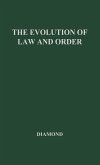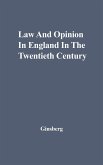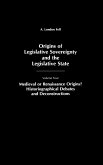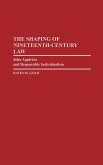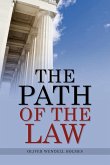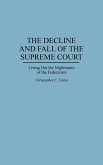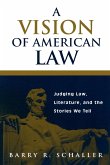Now, more than ever, we need to avoid nostalgia in thinking about the Good War. This collection of essays reveals some of the challenges that Americans' commitment to the rule of law faced during the Second World War. As a total war, World War II required an unprecedented mobilization of society and growth of the federal government. The American state survived as a government of laws, not men, but in a very different form than its prewar counterpart. Using examples from the war era, this study demonstrates that major wars can imperil and transform one of our most deeply held values, the notion that public officials are constructed by law. As a result of total war, the political landscape changed, and, with it, Americans' notions of what law could do. Supreme Court justices endangered their reputation as being above politics through their behind-the-scenes relations with FDR, and in several important constitutional decisions they relinquished the judicial supremacy that many Americans had considered a crucial safeguard of freedom. The national government's power to tax was dramatically expanded in ways that left tax resistors looking like cranks rather than freedom fighters. When New Dealers tried to realize the potential of law as a vehicle of social organization, they fell prey to conservative rivals in the federal bureaucracy and Congress, but this defeat did nothing to slow the overall expansion of the administrative state, which continued under the formal oversight of the federal judiciary.
Hinweis: Dieser Artikel kann nur an eine deutsche Lieferadresse ausgeliefert werden.
Hinweis: Dieser Artikel kann nur an eine deutsche Lieferadresse ausgeliefert werden.


